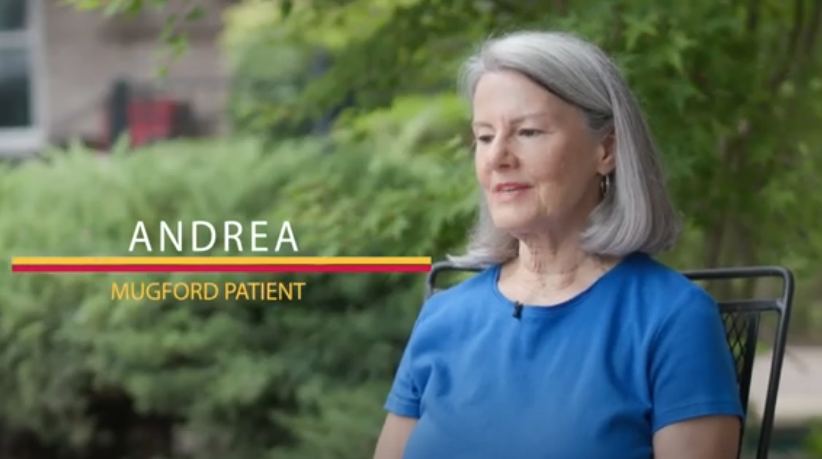Exploring All Options
There’s a common misconception that missing teeth are inevitable as we age. While gum disease and other factors can lead to tooth loss, advancements in dentistry offer numerous ways to preserve your natural smile. This article explored the benefits of saving teeth over opting for dental implants or full-mouth implant-supported dentures (full mouth restorations).
Why Saving Your Teeth Matters
Dr. David Mugford, a periodontist at the Crofton, Maryland-based Mugford Center for Periodontics and Dental Implants, emphasizes the importance of prioritizing natural teeth: “Many times, people do not need to lose their teeth,” Dr. Mugford states. “As a matter of fact, they can get a better result by saving their teeth, and in some cases, it can be less expensive.“
Here’s a breakdown of the advantages of keeping your natural teeth:
- Stronger Bite Force: Natural teeth provide a stronger bite force compared to dental implants, allowing you to chew a wider variety of foods with greater ease.
- Improved Speech: Your teeth play a crucial role in proper speech articulation. Missing teeth can lead to slurring or difficulty pronouncing certain words.
- Preserves Jawbone Health: The roots of your natural teeth stimulate your jawbone, preventing bone loss. Implants do not stimulate bone in the same way.
- Comfort and Familiarity: There’s a comfort level and familiarity associated with your natural teeth. Implants require an adjustment period.
- Potentially Lower Cost: Depending on the number of teeth needed and the complexity of the case, saving your teeth through periodontal treatment might be more cost-effective than dental implant procedures.
When Saving Teeth is the Right Choice
Dr. Mugford advocates for a patient-centered approach, stating, “It’s important to go over the treatment options and make sure we’re not deciding on the treatment for the patient. We need to make sure we’re educating each person as to what the possibilities are, what the limitations are, and why they may or may not want to use one technique over another.”
Here are some scenarios where saving your teeth might be the preferred approach:
- Early Gum Disease: Periodontal treatment, including deep cleaning and scaling, can address gum disease and prevent further tooth loss.
- Loose Teeth: Loose teeth don’t always necessitate extraction. Splinting procedures can stabilize them.
- Cracked or Fractured Teeth: Depending on the severity, advanced techniques like crowns or root canals can repair and preserve teeth.
Patient Testimonial: The Power of Saving Teeth
Andrea, a patient of Dr. Mugford, emphasizes the value of seeking a dentist who prioritizes saving teeth: “I would encourage people not to give up hope. There is hope if you find the right dental provider who can help you, like Dr. Mugford, to keep your teeth and reduce your pain and to have a better outcome than you thought you were going to have in the first place.”
Andrea further highlights Dr. Mugford’s evidence-based approach and dedication to achieving optimal results: “The other thing that impresses me about Dr. Mugford is his evidence-based practice. He uses the evidence of science to inform his care. Coming from a healthcare background, that was exceptionally important to me. His technical skill is exceptional. I’ve seen him work over and over again to get my bite perfect. He doesn’t accept ‘good enough.'”
Dental Implants: A Viable Option in Certain Cases
Dental implants are a remarkable innovation that can replace missing teeth with a natural-looking and functional solution. However, they are not a one-size-fits-all answer. Here’s when dental implants might be preferable:
- Severely Damaged Teeth: If a tooth is beyond repair due to extensive decay or fracture, an implant might be the best option.
- Advanced Gum Disease: In cases of severe gum disease with significant bone loss, implants may offer a more stable solution compared to saving compromised teeth.
- Multiple Missing Teeth: Dental implants can effectively replace several missing teeth, restoring your ability to chew and speak efficiently.
- Full Mouth Restoration: For patients with extensive tooth loss, full mouth implant-supported dentures offer a secure and permanent solution.
Finding a Periodontist Near You
If you’re experiencing gum disease, loose teeth, or other dental concerns, consulting a periodontist is crucial. Periodontists are specialists trained in diagnosing and treating gum disease, along with offering advanced solutions for saving teeth.
Serving the wider Crofton-Baltimore-Annapolis area, The Mugford Center offers flexible scheduling options and can assist with your periodontal and dental implant questions. Call The Mugford Center for Periodontics & Dental Implants today at (410) 260-0790 or complete the “schedule an appointment” form on our website.
If you are outside of our Crofton and Baltimore, Maryland area, here‘s how to find a qualified periodontist near you:
- Ask your dentist for a referral.
- Search online directories of the American Academy of Periodontology (AAP) or your local dental society.
- Read patient reviews on dental websites or platforms like Google.

